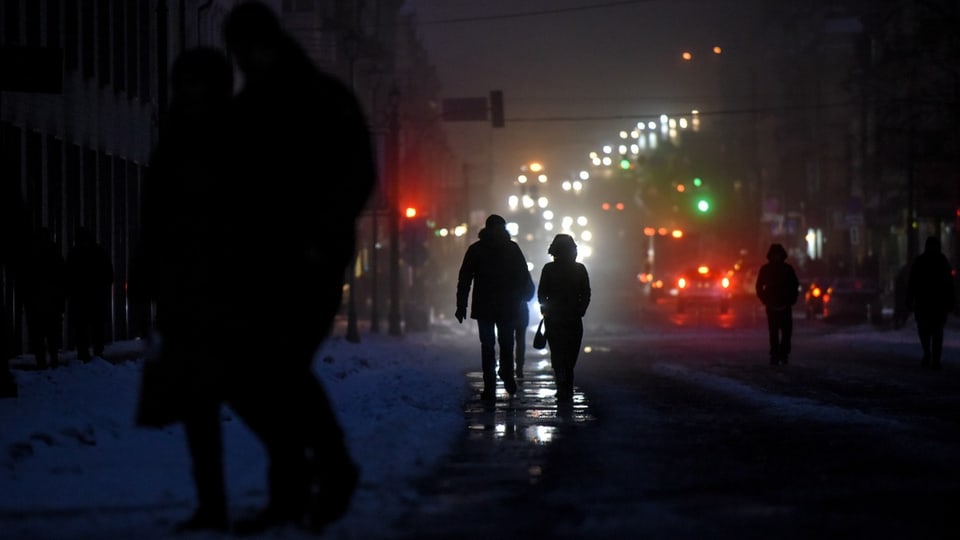Contents
Over the weekend, Russia again attacked numerous locations in Ukraine from the air, primarily with drones. For the first time in weeks, the capital Kiev was also the target again.
SRF special correspondent David Nauer has also been in Kiev for a few days. In the conversation, Nauer describes a normality that is not normal.
SRF News: David Nauer, can you describe how you are currently experiencing Kiev?
David Nauer: At first glance, Kiev is very lively, there are a lot of people on the streets, the restaurants are full. New restaurants and shops are even opening. If you walk around the city, go out to eat, visit museums, etc., you could easily forget that there is a war going on.
Beneath the surface, the war is very present
On the surface, normality seems to have returned to Kiev. Does this impression confirm itself when you talk to local people?
No, the war is very present beneath the surface. Many people here have acquaintances or friends who are at the front or who have already fallen. I’ve heard several discussions where people ask themselves: ‘Are we allowed to go out here, to dinner or to the theater, when our boys in the East are in the trenches and dying?’ So there’s this moral dilemma.
There is also the awareness that the war can return to Kiev at any time. On Saturday the capital was bombarded with rockets.
A year ago, Russia targeted Ukraine’s energy infrastructure. There were power outages and many homes remained cold in the winter. Are you better prepared now?
In some ways, Ukraine is better prepared. First, Ukrainian air defense is much better than last fall. Secondly, people have also prepared. Huge rechargeable batteries, diesel generators and so on have been purchased to be prepared for power outages.
The assumption is that Russia is saving missiles so that it can attack violently when it gets cold.
However, the Russians will also have prepared for new attacks. What is striking is that Russia has fired relatively few missiles at Ukraine in recent weeks. The assumption is that Russia is saving missiles so that it can attack violently when it gets cold.

Legend:
Power outage: This was almost part of everyday life in Kiev last winter. (12/8/22)
EPA/OLEG PETRASYUK
Ukraine has recently been able to report little success on the front. The counteroffensive has stalled. How is this discussed in Ukraine?
There are different opinions. It depresses many that there are no successes at the front. Many of my interlocutors fear that the war will drag on. I have repeatedly heard the question of how Ukraine can sustain a year-long war against Russia, especially if the West will send fewer weapons in the future. The mood has clearly deteriorated compared to my previous trips.
Have critical voices against the army and the government become louder due to the lack of military success?
Since I’ve been here, I haven’t heard any open criticism of President Volodymyr Zelensky. From the point of view of many, there is no alternative. Apart from him, there is currently no one in sight who could rule the country. But enthusiasm for the president is no longer as great as it was a year ago.
Trust in Zelensky is no longer blind.
People are wondering what’s going on at the front. Some also complain that the pro-government media continues to spread one optimistic report after another – which does not correspond to the reality of people’s lives. In short: an overwhelming majority supports Zelensky, but trust is no longer blind.
